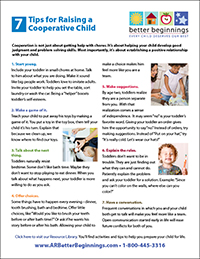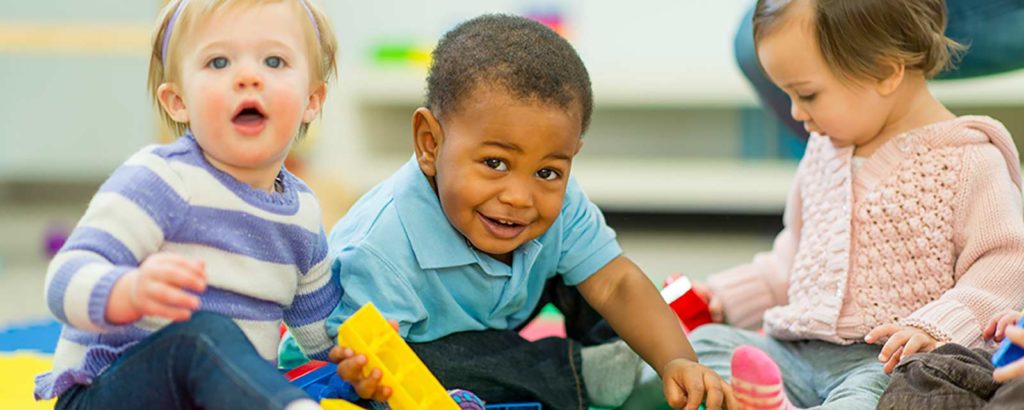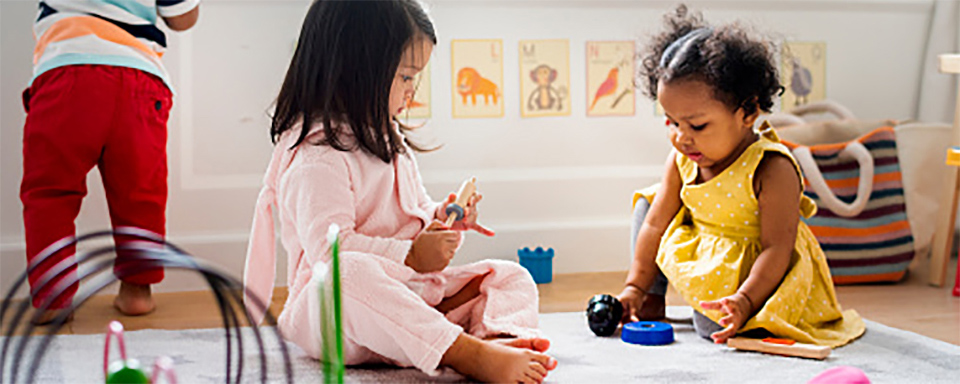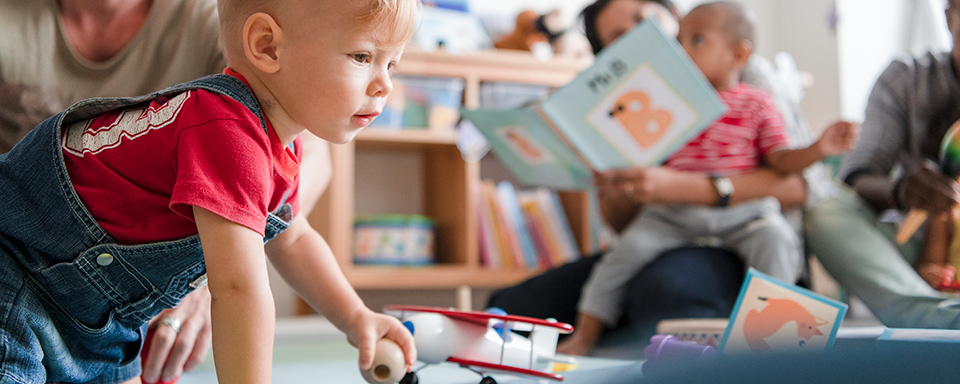Cooperation is not just about getting help with chores. It’s about helping your child develop good judgment and problem solving skills. Most importantly, it’s about establishing a positive relationship with your child.
1. Start young.
Include your toddler in small chores at home. Talk to him about what you are doing. Make it sound like big people work. Toddlers love to imitate adults. Invite your toddler to help you set the table, sort laundry or wash the car. Being a “helper” boosts toddler’s self-esteem.
2. Make a game of it.
Teach your child to put away his toys by making a game of it. You put a toy in the toy box, then tell your child it’s his turn. Explain that because we clean up, we know where to find our toys.
3. Talk about the next thing.
Toddlers naturally resist bedtime. Some don’t like bath time. Maybe they don’t want to stop playing to eat dinner. When you talk about what happens next, your toddler is more willing to do as you ask.
4. Offer choices.
Some things have to happen every evening – dinner, tooth brushing, bath and bedtime. Offer little choices, like “Would you like to brush your teeth before or after bath time?” Or ask if he wants his story before or after his bath. Allowing your child to make a choice makes him feel more like you are a team.
5. Make suggestions.
By age two, toddlers realize they are a person separate from you. With that realization comes a sense of independence. It may seem “no” is your toddler’s favorite word. Giving your toddler an order gives him the opportunity to say “no.” Instead of orders, try making suggestions. Instead of “Put on your hat,” try “It’s really cold. Let’s wear our hats!”
6. Explain the rules.
Toddlers don’t want to be in trouble. They are just finding out what they can and cannot do. Patiently explain the problem and ask your toddler for a solution. Example: “Since you can’t color on the walls, where else can you color?”
7. Have a conversation.
Frequent conversations in which you and your child both get to talk will make you feel more like a team. Open communication started early in life will ease future conflicts for both of you.

View/Download the PDF version here. (Right click and chose “Save Link As” to download)
Click here to visit our Family Resource Library. You’ll find activities and tips to help you prepare your child for life.









